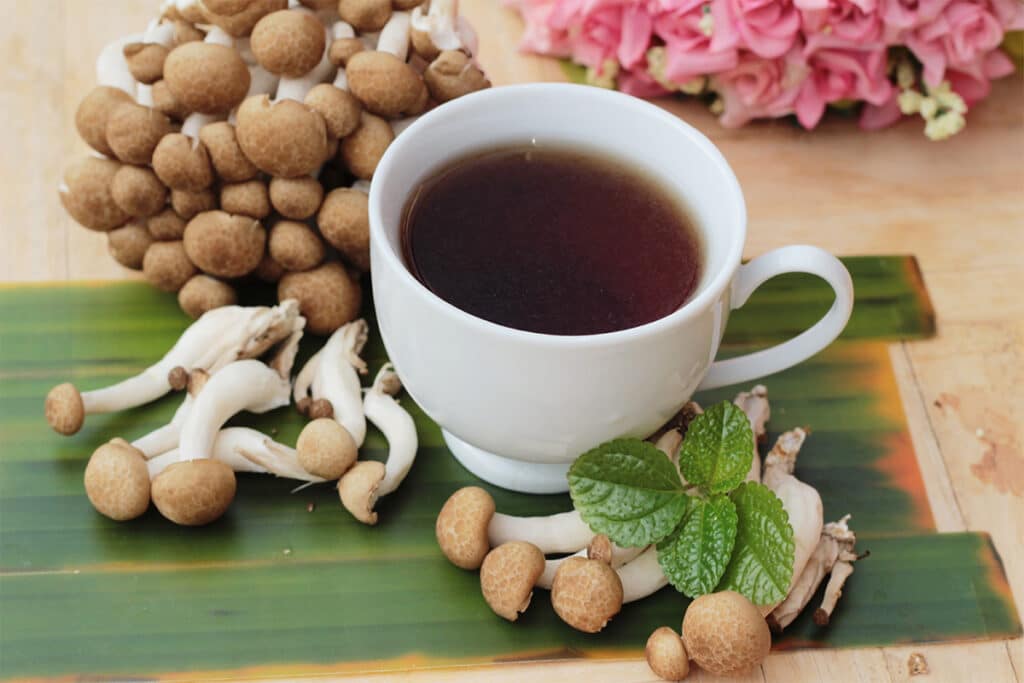
7 Shocking Facts About the Google Memory Game You Never Knew
We all have our favorite memory games, but did you know that Google has entered the ring with an impressive array of neurologic challenges for

Lion’s mane mushrooms have been used for centuries in Traditional Chinese Medicine (TCM) to reap a variety of benefits. Perhaps most renowned is its capacity to improve cognitive function and memory, though there is also evidence to support spiritual advancements as well. Furthermore, lion’s mane has anti-inflammatory and anti-cancer properties as well as being an excellent food source.
Lion’s mane is considered a “superior” herb in Traditional Chinese Medicine (TCM), meaning it offers numerous benefits with few side effects. It has been said to benefit the spleen, stomach and lungs as well as boost the immune system. Furthermore, it serves as both an anorectic for nervous systems and general tonic for good health.
Lion’s mane mushrooms are packed with essential nutrients such as beta-glucans, erinacines, hericystins and hericystenes. Studies have demonstrated these compounds to have anti-inflammatory, cancer prevention and immune boosting effects. Furthermore, Lion’s Mane boasts plenty of antioxidants and polysaccharides which may improve gut health and digestion.
Lion’s Mane mushrooms can be purchased online or at your local health food store. Enjoy it fresh, cooked or in powder form; capsules and tinctures are also available.
When purchasing lion’s mane mushrooms, look for products certified organic and free of pesticides and herbicides. Lion’s mane mushrooms should be firm, white, and slightly spongy in texture; avoid those which are yellow, brown, or have black spots.
Lion’s mane can be enjoyed in a variety of ways. It can be cooked and added to soups, stews, casseroles and stir-fries; Lion’s mane powder can also be mixed into smoothies, juices and baking recipes; plus there are capsules that can be taken daily as a dietary supplement.
If you’re searching for a natural way to enhance cognitive function and memory, lion’s mane is an excellent choice. This medicinal mushroom has been used for centuries in Traditional Chinese Medicine and offers numerous benefits that can be ingested safely as part of an everyday diet. With no adverse reactions, adding this mushroom to your diet won’t feel like any special effort at all!
Lion’s Mane mushrooms get their name from their furry appearance, which is said to resemble a lion’s mane. These mushrooms typically grow wild on dead or dying trees in the wild.
Lion’s Mane mushrooms (Hericium erinaceus) have been used in folk medicine for centuries, with the first recorded use dating back to China’s Tang Dynasty (618-907 AD). Traditional Chinese medicine considers them a “superior herb” due to their wide array of purported health benefits. Nowadays, Lion’s Mane mushrooms are experiencing a resurgence in popularity as people search for natural ways to improve their wellbeing and immunity. Let us take a closer look at this remarkable fungi and see why everyone is buzzing about.
Lion’s Mane mushrooms are large, white fungi that resemble a lion’s mane or pom-pom. Native to North America, Europe and Asia, these medicinal mushrooms have been used for centuries around the world due to their anti-inflammatory and immunomodulating properties. It’s said that Lion’s Mane mushrooms can effectively treat various conditions like anxiety or depression as well as gastritis and Crohn’s disease.
Lion’s Mane mushrooms contain compounds like hericystin and erinacines which may promote nerve growth factor (NGF) production. NGF is an essential protein in neuron growth, maintenance, and survival – making Lion’s Mane mushrooms a potential natural treatment for neurodegenerative diseases like Alzheimer’s and Parkinson’s.
Lion’s Mane mushrooms are generally safe when consumed in small amounts. However, some people may experience mild gastrointestinal upset when taking them as supplements. If you experience any negative effects while taking these supplements, stop taking them and consult your doctor immediately.
Lion’s Mane mushrooms have been used medicinally for centuries and are currently experiencing a surge in popularity due to their various claimed health benefits. If you’re searching for an all-natural way to boost your immunity, these unique fungi may be worth trying – just remember to consult your doctor first before taking any supplements and start with a small dose to see how your body responds.
Traditional Chinese Medicine (TCM) recognizes many herbs and mushrooms as “superior tonics,” or substances believed to promote overall wellbeing and vitality. Lion’s mane is one such edible mushroom with a long-standing use in TCM.
Lion’s Mane mushroom, native to China, Japan and North America, gets its name from its appearance which resembles a lion’s mane. Traditional Chinese medicine (TCM) has used this mushroom for centuries as an effective treatment for ailments such as cognitive decline, anxiety and depression.
Studies have recently demonstrated the therapeutic potential of lion’s mane mushroom. This mushroom contains compounds which may stimulate nerve cell growth and enhance cognitive function, in addition to anti-inflammatory and antioxidant properties.
If you’re searching for an herbal supplement with a long history in Traditional Chinese Medicine, lion’s mane may be worth exploring. This edible mushroom has been said to promote overall wellbeing and vitality as well as aid with cognitive decline, anxiety and depression. Recent studies have suggested there may be some truth in these claims; before trying lion’s mane however, be sure to consult your doctor first to make sure it’s suitable for you.
Lion’s Mane Mushroom has been used for centuries in Traditional Chinese Medicine as a natural remedy to address health problems like cognitive decline, anxiety and depression. More recently, studies have demonstrated its efficacy at boosting immunity, relieving inflammation and aiding digestion.
Lion’s Mane Mushroom contains compounds like hericystin and erinacine that have been linked to its numerous health benefits. Studies have demonstrated these compounds improve cognitive function, reduce inflammation, and boost immunity levels. Furthermore, Lion’s Mane Mushroom boasts an abundant supply of antioxidants as well as polysaccharides – essential for gut health.
Lion’s Mane Mushroom has long been recognized for its cognitive benefits. Studies have demonstrated that this natural remedy increases levels of nerve growth factor (NGF) in the brain, an essential hormone which supports nerve cell growth and maintenance. Furthermore, Lion’s Mane Mushroom may help enhance memory and reduce symptoms related to Alzheimer’s disease or dementia.
Lion’s Mane Mushroom is an ideal natural remedy for relieving inflammation. This mushroom contains compounds like hericystin and erinacine, both of which have anti-inflammatory effects. Furthermore, Lion’s Mane Mushroom boasts a high amount of antioxidants which may shield cells from free radical damage caused by exposure.
Finally, Lion’s Mane Mushroom can further strengthen your immune system. This mushroom contains beta-glucans which stimulate white blood cell production. Furthermore, taking this mushroom may reduce symptoms associated with colds and flu.
Are you searching for a natural remedy that can address various health concerns? Lion’s Mane Mushroom is the answer. This mushroom has been used for centuries in Traditional Chinese Medicine to treat cognitive decline, anxiety, depression and more. Furthermore, Lion’s Mane Mushroom helps strengthen your immune system, reduce inflammation and aid digestion – so why wait? Give this natural remedy a try now!
Lion’s mane mushroom is a type of edible fungi that has been used in Traditional Chinese Medicine for centuries. This “medicinal mushroom” is said to have numerous health benefits, including the ability to boost cognitive function and improve memory. Additionally, lion’s mane is also thought to help with anxiety, depression, and inflammation. If you’re looking for an all-natural way to improve your health, this mushrooms may be worth considering!
Lion’s Mane Mushroom contains compounds like hericystin and erinacine that have been linked to its health benefits. Studies have demonstrated these compounds improve cognitive function, reduce inflammation, and boost immunity. Furthermore, Lion’s Mane Mushroom boasts an impressive abundance of antioxidants as well as polysaccharides – essential for gut health.
Lion’s mane is also a source of antioxidants and anti-inflammatory compounds, which are thought to help protect the brain from damage caused by free radicals. These properties may also be beneficial for people suffering from anxiety and depression. Several studies have shown that lion’s mane can help reduce anxiety and improve mood, although more research is needed in this area.
If you’re looking for an all-natural way to improve your cognitive function, memory, and mood, look no further than lion’s mane mushroom. This medicinal mushroom has been used in Traditional Chinese Medicine for centuries and is only now beginning to gain popularity in the Western world. If you’re interested in trying out this natural remedy, be sure to talk to your doctor first to see if it’s right for you.
Lion’s Mane is an edible mushroom with a long-standing practice in traditional Chinese medicine. It gets its name due to its resemblance to a lion’s mane, though it’s sometimes also called the “monkey head mushroom” or “bearded tooth mushroom.” Lion’s Mane has long been believed to have numerous health benefits as well as spiritual advantages like boosting cognitive function, decreasing inflammation and aiding digestion. Recently however, Lion’s Mane has gained attention for its potential treatment of anxiety and depression – let’s explore further into how science supports these claims!
A 2008 study discovered that Lion’s Mane extract can effectively reduce anxiety and depression in mice. While the exact mechanism by which Lion’s Mane exerts these effects remains uncertain, its researchers speculate it may be due to its ability to increase levels of nerve growth factor (NGF) in the brain. NGF, a protein essential for neuron development and maintenance, has been linked with low levels in both anxiety and depression.
Lion’s Mane has also been said to improve cognitive function. A 2009 study discovered that supplementing with Lion’s Mane extract improved cognition in elderly adults with mild cognitive impairment. Those receiving the extract showed significantly better scores on tests of memory compared to those receiving a placebo. It is thought the compounds present in Lion’s Mane help protect neurons from damage and encourage new nerve cell growth, helping protect existing neurons while stimulating new ones.
Evidence indicates Lion’s Mane has some anti-anxiety and antidepressant effects, as well as cognitive-enhancing qualities. If you’re searching for a natural way to lift your mood or enhance cognitive function, give Lion’s Mane a try!
Lion’s Mane is a type of medicinal mushroom used for centuries in Traditional Chinese Medicine. It gets its name from its long, shaggy white spines which resemble a lion’s mane. Some even refer to Lion’s Mane as the “mushroom of immortality,” due to both its purported health benefits and spiritual powers. Let us take a closer look at this remarkable mushroom to find out why all the buzz is about.
Lion’s Mane has often been referred to as the “mushroom of immortality.” This remarkable mushroom contains compounds that can have profound effects on your health, such as hericystin and erinacine – compounds which help boost cognitive function and memory. Furthermore, Lion’s Mane contains antioxidants and anti-inflammatory compounds which protect cells from damage while improving overall wellbeing.
Lion’s Mane Mushroom can be used in a number of ways to improve your health. A popular method is taking it as a dietary supplement or finding it in powdered form that can be added to smoothies, soups and other recipes. For maximum benefits from this amazing mushroom, make sure you incorporate it into your meals on a regular basis.
Are you in search of a way to enhance cognitive function, memory and overall health? Lion’s Mane Mushroom should definitely be added to your diet. This incredible mushroom has been used in Traditional Chinese Medicine for centuries and has been proven to have profound effects on human wellbeing – so why wait? Give Lion’s Mane Mushroom a try now!
Lion’s Mane: The Mushroom of the Moment
Lion’s Mane mushrooms (Hericium erinaceus) are having a moment. Native to Asia, this edible fungus can also be found in North America and Europe. Though it may not look like much at first glance, don’t let its unassuming appearance fool you–lion’s mane mushrooms are nutritional powerhouses. Here’s everything you should know about their spiritual benefits as well as this trendy ingredient:
Lion’s mane mushrooms have been used in traditional Chinese medicine for centuries. Their name comes from their hairy, cascading spines that resemble a lion’s mane when cooked; when prepared this way, lion’s mane mushrooms take on a flavor and texture similar to crab or lobster meat when cooked, making them an attractive vegetarian and vegan alternative to seafood dishes.
Lion’s mane mushrooms are an excellent source of protein, fiber and antioxidants. Additionally, they contain compounds like ergothioneine and hericystin that have potent anti-inflammatory and cancer fighting abilities. Furthermore, these mushrooms contain beta-glucans which have been known to strengthen the immune system.
Lion’s mane mushrooms offer spiritual benefits as well as nutritional value. You can eat them raw, cooked or dried; just remember to cook them slowly over low heat to prevent them from becoming tough. They’re great in soups, stir-fries, risottos, pasta dishes and more; for a quicker addition to your diet you may find capsules of lion’s mane mushrooms at most health food stores.
If you’re in search of a nutritious way to enhance the flavor of your dishes, lion’s mane mushrooms are the perfect ingredient. Not only can this versatile ingredient be used in many recipes, but it also offers numerous health benefits. So next time you visit your local grocery store or farmers market, don’t forget to pick up some lion’s mane mushrooms and give them a try!

Lion’s Mane mushrooms have been used for centuries in traditional Chinese medicine, and more recently have become a popular culinary ingredient due to their unique flavor and health benefits. Lion’s mane mushrooms can be consumed cooked or raw and often feature in soups and other dishes. In this article, we’ll provide an introduction to lion’s mane mushrooms; including their history, health benefits and how to cook with them effectively.
Lion’s Mane mushrooms are native to North America and Asia, earning their name due to their resemblance to a lion’s mane. The first recorded use of these mushrooms dates back to China’s Ming Dynasty (1365-1644). At that time, they were used for both medicinal and culinary purposes. According to Traditional Chinese Medicine (TCM), lion’s mane mushrooms can help increase energy levels, improve digestion, and reduce inflammation.
Lion’s mane mushrooms have seen a recent surge in culinary popularity due to their unique flavor and health benefits. They can be found in soups and other dishes alike.
Lion’s mane mushrooms are an abundant source of antioxidants and polysaccharides that may support immune system function. Furthermore, some studies suggest they contain compounds which could protect the brain from free radical damage caused by exposure. Furthermore, some research suggests consuming lion’s mane mushrooms may improve cognitive performance as well as memory.
Lion’s mane mushrooms can be enjoyed either cooked or raw. Cooking them has a taste and texture similar to crab meat or lobster. To cook with them, simply sautee in olive oil or butter until browned, then add them to any soup or dish recipe you wish. For something truly adventurous, why not try making your own mushroom tea!
Make mushroom tea: simmer 1-2 tablespoons of dried lion’s mane mushrooms in 8 ounces of water for 10 minutes, strain, and enjoy! You may sweeten your tea with honey or sugar if desired.
Lion’s mane mushrooms have been used for centuries in traditional Chinese medicine, and more recently have become increasingly popular as a culinary ingredient due to their unique flavor and health benefits. Lion’s Mane mushrooms can be consumed cooked or raw and often feature in soups and other dishes. This article serves as an introduction to lion’s Mane mushrooms; covering its history, health benefits, and how best to cook with them.
We’ve all been there. You start taking a new supplement, feeling great, and seeing great results. But then unexpectedly, some unwanted side effects appear. It can be discouraging to experience this type of reaction, but know that you are not alone if experiencing side effects from Lion’s Mane such as nausea or diarrhea.
Lion’s Mane is a type of mushroom used for centuries in traditional Chinese medicine. It’s renowned for its cognitive-enhancing effects and has even been shown to reduce symptoms associated with Alzheimer’s and dementia, as well as having spiritual benefits associated with its use.
Lion’s Mane is generally considered safe, however some people may experience side effects like nausea, diarrhea or stomach upset. If you experience any of these effects it’s important to stop taking Lion’s Mane and consult with your healthcare provider.
If you’re thinking about adding Lion’s Mane to your supplement regimen, it is essential to be aware of potential side effects. Nevertheless, remember that not everyone will experience them. If, after taking Lion’s Mane for a period of time, any negative reactions occur, stop taking the supplement immediately and consult with your healthcare provider immediately.
If you’re pregnant and wondering if taking Lion’s Mane is safe for your unborn child, there are some potential risks involved. Though studies have demonstrated cognitive function and memory enhancement from taking Lion’s Mane, there have also been claims of spiritual benefits as well. It is best to be informed before making a decision; let us explore these in more detail.
Lion’s Mane is a type of mushroom commonly taken as a dietary supplement. While it’s generally safe for most people and there are claims of spiritual benefits from taking Lion’s Mane during pregnancy, there are some risks involved. Primarily, taking Lion’s Mane may stimulate your immune system which could lead to issues like inflammation or allergies; furthermore, taking Lion’s Mane may affect nutrient absorption from food sources which could result in deficiencies of certain vitamins and minerals.
Another potential concern is Lion’s Mane may act as an estrogen mimic, binding to estrogen receptors in the body and disrupting hormonal balance. This could result in issues like weight gain, mood swings and hot flashes for women taking it during pregnancy. Furthermore, taking Lion’s Mane increases the risk of miscarriage or preterm labor for pregnant women.
Unfortunately, taking this supplement appears to have more risks than benefits. If you’re pregnant and looking for a way to enhance cognitive function during pregnancy, there are safer options out there that would be safer for both you and your unborn child; speak with your doctor about which option would be best suited for you.
In conclusion, pregnant women should avoid taking Lion’s Mane due to its potential risks. If you’re trying to improve cognitive function while pregnant, talk with your doctor about other safer options that would benefit both you and your unborn child.
Before taking Lion’s Mane, it is recommended to consult with a healthcare professional if you have any medical conditions or are taking medications.

We all have our favorite memory games, but did you know that Google has entered the ring with an impressive array of neurologic challenges for

Einstein’s Universal Appeal: Exploring the Global Impact of an Iconic Genius in 2023 Why Does the World Remember Einstein as a World Citizen? What is

I genuinely dislike computer science, but that won’t stop me from earning my degree by 2023. It’s no secret that computer science classes can be

In the early days of Instagram, getting verified was considered a sign of honor. That little blue checkmark next to your name indicated you were
† These statements have not been evaluated by the FDA. This product is not intended to diagnose, treat, cure, or prevent any disease.